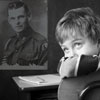Awakening Past Life Memories
 by Robert C. Smith
by Robert C. Smith
Have you ever stepped outside on a warm spring night and found that the balmy air and the light fragrance of early blossoms awakened feelings almost too deep to describe? Or maybe you’ve had the experience of hearing a particular song from the past come on the radio, and all of a sudden that song transports you to another time and place. You not only remember what you were doing when you first heard the song, but you can even remember what you were thinking and feel what you were feeling then.
The sounds, sights, and smells around us—they are such powerful influences on our memories and emotions, and so individual in their effects on us. The same song can bring a happy memory for one person and a painful recollection for another. One person might feel a restless sense of adventure at the sound of a train whistle in the night, while another feels lonely desolation. Even the most common, everyday experiences can produce very different feelings in different people. For example, when you hear a telephone ring, do you experience anticipation? Annoyance? Some other reaction? Or maybe nothing at all? What is it about the sounds, sights, and smells around us that brings forth such a variety of responses from people? Is it something in these perceptions themselves that causes us to react differently from one another, or is it something in us?
Just the briefest reflection will tell us that we respond differently because we are different. As individuals with unique experiences and memories, we go through life responding to the world around us on the basis of what we’ve seen, done, and felt in the past.
In the same way that we are constantly unconsciously associating sounds around us with earlier memories from this lifetime, we may also be reacting to stimulation that triggers past life emotions and attitudes. Becoming aware of these automatic responses to sounds, sights, and experiences is one very fruitful way to uncover memories of previous lives.
Most of the time, such reactions arise without any obvious connection to a specific set of past life circumstances. In order to get an idea of their origin, we must observe them carefully and consider them in conjunction with other clues to our remote past. In other instances, an automatic response of this sort can evoke a definite, readily identifiable experience from an earlier incarnation. According to the information in the Edgar Cayce readings, the recall that comes when we spontaneously react to events in this life is perhaps the most accurate memory of all.
Often, people who came to Edgar Cayce for readings reported such spontaneous responses, wondering if they were actually the result of past life memories. Their readings confirmed that these responses had indeed been glimpses of former incarnations. Since these individuals were ordinary people, not necessarily possessing psychic gifts, we can assume that we, too, may happen upon times when actual memory of a past experience come to mind.
At times these memories, or fractions of memory, seem to be like pieces of film that have been inserted somehow into our normal thoughts—bits and pieces of memory that fleetingly pass through our mind as we go about our daily routines. Sometimes they catch our attention; often they go almost unnoticed.
In some cases a spontaneous reaction will be triggered by a particular thing which we can identify. For example, one woman reported that whenever she heard a certain type of singing, she seemed to experience herself watching Jesus’ triumphant entry into Jerusalem. Her Edgar Cayce reading said that she had been present at that event and thus confirmed her experience as an actual memory. Mr. Cayce told her that this experience in her former lifetime had so impressed itself upon her that it was brought to mind very often. Others who had readings from Edgar Cayce also found that unusual emotional reactions were clues to past life influences. For example, one woman asked why she had such a noticeable tingling sensation each time she heard the words of Jesus. She was told that she had actually heard his voice in a lifetime in Palestine. Another woman had felt much fear and dread whenever she heard the sounds of ice slides or of horses running over snow. Mr. Cayce explained her emotional responses to the sounds by telling her that in a previous life she had died in the icy waters of the Ohio River. Another person was told that his sympathetic understanding for people who were suffering from tuberculosis was the direct result of a lifetime in which he had had the same condition.
Those who are lucky enough to be able to travel to other countries often tell of unusual happenings that may be related to memories from the distant past. Some people experience a vague sense of having been there before. Others feel a sense of belonging, a sense of peace, as if they were coming home. Many travelers find that they have an unexplainable acute sense of direction. They know what is around the next bend, know what is down a certain side street. Still others experience uneasiness, tingling sensations, sadness, or despair; some even find themselves crying intensely for no apparent reason.
One woman was on a tour of Israel and reported such an experience at Caesarea. She had particularly looked forward to visiting this historic spot, as she had always been interested in the Bible and the early Church. It was a beautiful day, and she felt great. As she stood just inside the entrance to Caesarea, the tour guide paused and was explaining the various happenings that had taken place there throughout history. She found his description vaguely interesting, though it wasn’t anything that particularly intrigued her.
She noticed, however, that all of a sudden her stomach was upset and she had become shaky. She brushed it aside and went on with the tour inside the ruins. However, the feeling became worse, and finally she decided to leave the tour and go back to the bus. After spending a few minutes on the bus, she told herself that regardless of how she felt, she simply couldn’t miss the tour.
By the time she caught up with the group, they had gone over to the amphitheater at Caesarea. As she looked down into the coliseum, she burst into uncontrollable deep, convulsive sobbing, which she was unable to stop for more than an hour. She was totally surprised by this and had no idea what had caused it. Certainly nothing that was said could have brought about such a reaction. She was also embarrassed at such a display of feeling, as she was not an overly emotional person. She has no explanation as to why this reaction occurred.
Her husband has reminded her that she feels particularly close to the teachings of Paul in the Bible and often will defend Paul to those who take issue with some of his stands. Another related clue might be that she does not enjoy sports which are held in our coliseums today. Perhaps one explanation would be that she had been one of the early Christians in Caesarea, had known or worked with Paul, and had been persecuted there in some way. We might also theorize that she probably did not enjoy some of the sports and activities that went on in the coliseum during that period, which was at the height of Rome’s power.
It seems as if our interest in and fondness for certain countries might also indicate a past life in those places. Even circumstance beyond our control, such as a business trip, a military assignment, or a chance layover, give us opportunities to open the door to old memories. Maybe we “just happen” to travel to countries where we have lived before.
One young woman recently made plans to take a trip to Egypt. At first it seemed that the plans came out of nowhere. The opportunity presented itself, and she jumped at the chance. When she was telling her grandparents about the trip, they reminded her that one of her great uncles had traveled to Egypt in the 1950s and that items he had brought back were scattered throughout her house—a vase, a foot stool, several copper and brass bowls, and a picture of her uncle on a camel. The young woman suddenly realized that those items had always intrigued her. In fact, she noted that one of her earliest memories was of a small brass container engraved with hieroglyphics. Suddenly she began to wonder if her trip to Egypt was as spontaneous as it had seemed.
Even without extensive travel, sights near to home can trigger recall. The Cayce readings report that often we tend to incarnate in localities close to where we have lived previous lives. The readings told the parents of one young boy that in a past life he had been associated with George Washington. They were told that if they would take him to Mount Vernon, to the kitchen and to the bedroom where Washington had died, he would remember many things. When the parents took the four-year-old to Mount Vernon, the bedroom was roped off. They were able to visit the kitchen, however, and when they got there the child said, “I know where I am. I’m at Mount Vernon.”
One woman who lived in Virginia was told that if she would go to the town hall at Williamsburg and look out a particular window, she would remember standing there in a previous life, watching for her lover and catching her first glimpse of him from that window. Another was told that if she went to a fort near her home on a moonlit night in August and listened she would hear her own voice from a lifetime there. Sometimes just a facsimile of a previous experience can be enough to trigger recall. One person was told in a Cayce reading that sitting on the sands anywhere would evoke memories of an incarnation in Persia.
Movies and television provide an opportunity for each of us to travel to far off places. In addition to documentaries and travelogues, the authentic backgrounds to many historical movies and on-location programs enable us to steep ourselves in other cultures and customs. All of this serves to kindle in us sparks of memories.
Books and stories also have a way of reaching us and transporting us to other countries and other periods of time. We can pick up valuable clues as to where we might have spent some of our prior lifetimes by noticing the types of countries we like to read about. The Cayce readings encouraged those who wanted to recall past lives to study certain areas and countries in which they were interested. Not only history, but geography, maps and pictures of scenery were recommended to foster recall. One person, for example, was told to study the history of the early Church and he would find his memories were more accurate than the recorded accounts.
Sometimes we can start with a hint of a past life experience and then expand that inkling through study. One person who has worked with recalling former incarnations finds that her dreams will suggest countries she has lived in. She enjoys learning the languages of those countries and finds that she encourages further remembrance by doing so.
Whenever you feel you have had an experience in a certain time or place, use your imagination to fill in the details of those past lives. One individual was told in his Cayce reading that his ability to imagine a certain place stemmed from a previous lifetime he had spent there. The reading encouraged him to ask himself to make up details concerning those locations as a way of prompting even more recall. Another person was advised to imagine what the people in a particular setting from the past had had for dinner; this would be a surprising stimulus to old memories.
Exercise A
Without even being aware of it, most of us have definite feelings about certain places. Of course, this could be the product of earlier conditioning in the present lifetime. But often the roots go deeper than that.
Let’s get in touch with your feelings and your imagination now. Take a few moments to consider this question:
If you could visit any foreign country in the world, where would you go?
Now, if you have your place to visit in mind, it is time to use your imagination to fill in some of the details of what you would expect to find there. Take as much time as you need to let you mind explore. Don’t worry about the accuracy of your image of this country; what is important is what you expect to find. Allow yourself to free-associate, and cover a wide range of areas of life. When you are through constructing your mental picture of your chosen country, answer the following questions:
- Where did you choose to visit?
- List some of the things you imagined you’d find there. Let yourself come up with a variety of impressions from a number of different facets of life. Consider such things as places, objects, moods, types of people, colors, painting and architecture, music, and any other aspects of this country that suggest themselves to your imagination.
- List some of the feelings these things awaken in you. Do you find a range of feelings—some good, some not so good?
- What stories have you ever read about this place? How did they make you feel?
- Do you like movies and/or television programs set in this country? Note any that stand out and the emotions they evoke in you.
- Do you associate certain foods with this country? Do you have a taste for these foods?
- Are there items in your home that remind you of this place? What are they, and where in your home are they located?
- Are there other areas of your life in which an interest in this country is expressed? Consider such items as articles of clothing and other elements of personal adornment (hairstyle, for example), a liking for the music you associate with this country, an interest in reading nonfiction books or news items about it, an enjoyment of museum exhibits or other cultural displays that portray this area, etc.
- Have you ever known people who have traveled to this country, who have lived there for a period of time, or who were born there? How did you feel about these people and about your relationships with them?
- Have you ever visited this country yourself? If so, list a few of your strongest impressions from your trip. If not, list some of the things you associate with this area that make you feel you would like to go there.
- Is there any particular period from this country’s history that holds a special interest for you?
- Take a few minutes to make up a little story about the type of person you might have been if you had lived in this country during a previous lifetime. Once again, rely on your imagination rather than your factual knowledge of the area to fill in the details. When you’ve made up your story, you might want to jot it down for future reference.
- Are there any other comments you’d like to make concerning this exercise?
Were there some questions you were unable to answer? Sometimes the questions we cannot answer are as important as those we answer readily. Often, for example, people report that they don’t know what foods come from the countries they’ve chosen. This is a good opportunity to use the imagination and try to see what comes spontaneously to mind. Another possible approach is to use this uncertainty as a point of study. If your past life puzzle pieces start to point to a specific country, this might be a good reason to explore the foods of that country, perhaps through reading and studying, learning a new type of recipe, or even broadening your range of restaurants for a special night out.
Exercise B
Let’s try another exercise in imagination, but this time we’ll stay in our native country. Think about the following questions:
If you could visit anywhere in your own country, where would you go?
Now imagine some of the things you would expect to find there. Again allow your imagination to include things, moods, people, colors, music—whatever comes to mind. Take as much time as you need to identify these impressions you associate with the area you’ve selected. Then, when you’re ready, begin answering the questions below.
- What part of the country did you choose to visit?
- What did you imagine you’d find there? Once again, allow yourself the full range of expectancy and give yourself permission to surprise yourself.
- Do these things evoke any special feelings, either pleasant or unpleasant, in you?
- Do you associate certain types of people with this area? How do you feel about about these people?
- List any memorable stories you’ve read and any movies and television programs you’ve seen about this region, along with any vivid emotions they may have brought out in you.
- Do associate any special foods with this part of the country? Do you like this kind of food?
- Are there any items in your home that remind you of this area? What are they, and where are they located?
- Are there any other facets of your life which show your interest in this region?
- Have you ever actually visited this portion of the country? If you have, what are your strongest memories of your trip?
- Is there any phase of this region’s history that is of particular interest to you?
- As part of a game this time, use your imagination to make up a little story about visiting this area and recalling a past life there. Allow yourself to be as clever as you can. Include as much detail as you’d like, or be as fast and as simple as you wish. When you’re finished, take a minute to jot down the story.
- Do you have any additional thoughts or comments you’d like to make here?
Many people find that these two exercises yield a lot of memories, feelings, and observations. Processing them is one of the most important parts of the exercise. There are several possible ways of doing so. If you are working on this course with a group of people or with a friend, or if you are working alone but have a mate or trusted companion with whom you can share some of your past life clues, this may be a good time to stop reading for a while and talk about some of your feelings. If you are more comfortable working alone, you may find several ways to reflect upon your responses to this workshop. Maybe you’d just like to allow yourself to relax and let your mind drift. You may want to close your eyes and take a nap. You may prefer to write a few paragraphs about your experience. Or maybe you’d rather write a letter to an imaginary friend relating some of the feelings and clues you’ve discovered in your preferences for certain areas and in the stories you’ve made up.
In analyzing your responses, be sure to look for tendencies that are similar to current day situations. One woman, for instance, imagined herself as an Indian squaw in Colorado, going about her daily tasks. She associated this with her delight even today in finding kindling and pieces of firewood as she goes on walks in the woods. Her present enjoyment of an evening fire is similar to feelings she imagined having during the Indian lifetime she fantasized. Another person, who imagined herself in a British manor house in the mid-1800s, was surprised to associate her love of sweets and desserts with the English tea tray that she was enjoying in her story.
Our stories can also present very useful suggestions to us when they portray conditions that do not parallel those in our daily lives. For example, one woman reported feeling serenity in her made-up tale of a lifetime in Italy. She realized her hectic present day life style might borrow from the appreciation for the fine arts that she had learned there. She decided that she might include visits to art museums and concerts in this lifetime to invite some of the serenity and well-being she had discovered from her story.
When awakening memories from any past experience, you need to use good judgment and discretion as to what you choose to awaken. If a certain remembrance brings hopefulness and helpfulness into your experience, try to incorporate it into your lifestyle. If memories are brought out which are not helpful to you this lifetime, lay them aside. Past life memories and talents are best used to enhance the present life. You should not use them as escapism or as a detour from the road you have chosen for your self in this lifetime.
Excerpt from You Can Remember Your Past Lives
Posted in Other Topics, Past Life Therapy, Reincarnationwith comments disabled.





